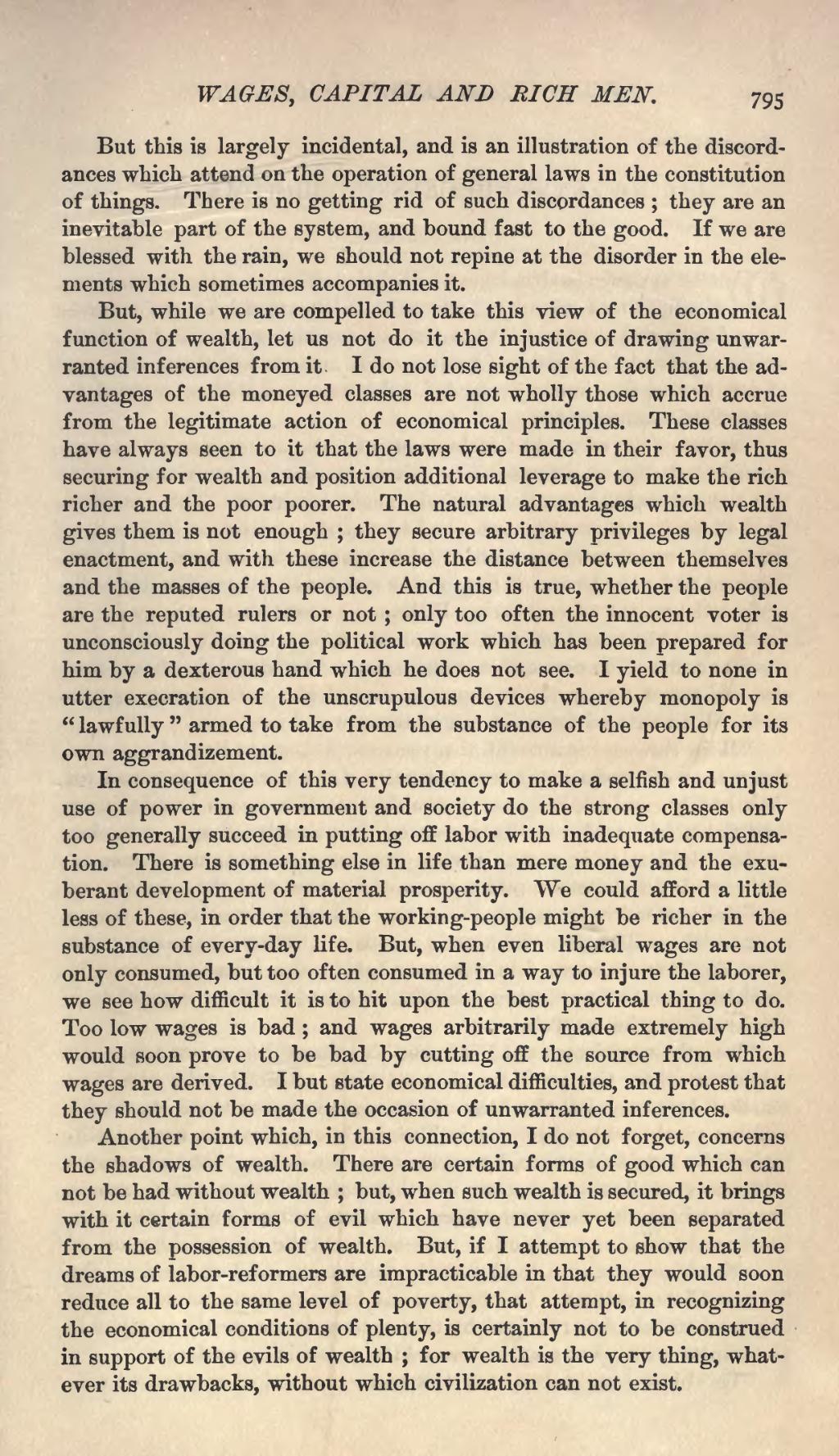But this is largely incidental, and is an illustration of the discordances which attend on the operation of general laws in the constitution of things. There is no getting rid of such discordances; they are an inevitable part of the system, and bound fast to the good. If we are blessed with the rain, we should not repine at the disorder in the elements which sometimes accompanies it.
But, while we are compelled to take this view of the economical function of wealth, let us not do it the injustice of drawing unwarranted inferences from it I do not lose sight of the fact that the advantages of the moneyed classes are not wholly those which accrue from the legitimate action of economical principles. These classes have always seen to it that the laws were made in their favor, thus securing for wealth and position additional leverage to make the rich richer and the poor poorer. The natural advantages which wealth gives them is not enough; they secure arbitrary privileges by legal enactment, and with these increase the distance between themselves and the masses of the people. And this is true, whether the people are the reputed rulers or not; only too often the innocent voter is unconsciously doing the political work which has been prepared for him by a dexterous hand which he does not see. I yield to none in utter execration of the unscrupulous devices whereby monopoly is "lawfully" armed to take from the substance of the people for its own aggrandizement.
In consequence of this very tendency to make a selfish and unjust use of power in government and society do the strong classes only too generally succeed in putting off labor with inadequate compensation. There is something else in life than mere money and the exuberant development of material prosperity. We could afford a little less of these, in order that the working-people might be richer in the substance of every-day life. But, when even liberal wages are not only consumed, but too often consumed in a way to injure the laborer, we see how difficult it is to hit upon the best practical thing to do. Too low wages is bad; and wages arbitrarily made extremely high would soon prove to be bad by cutting off the source from which wages are derived. I but state economical difficulties, and protest that they should not be made the occasion of unwarranted inferences.
Another point which, in this connection, I do not forget, concerns the shadows of wealth. There are certain forms of good which can not be had without wealth; but, when such wealth is secured, it brings with it certain forms of evil which have never yet been separated from the possession of wealth. But, if I attempt to show that the dreams of labor-reformers are impracticable in that they would soon reduce all to the same level of poverty, that attempt, in recognizing the economical conditions of plenty, is certainly not to be construed in support of the evils of wealth; for wealth is the very thing, whatever its drawbacks, without which civilization can not exist.
